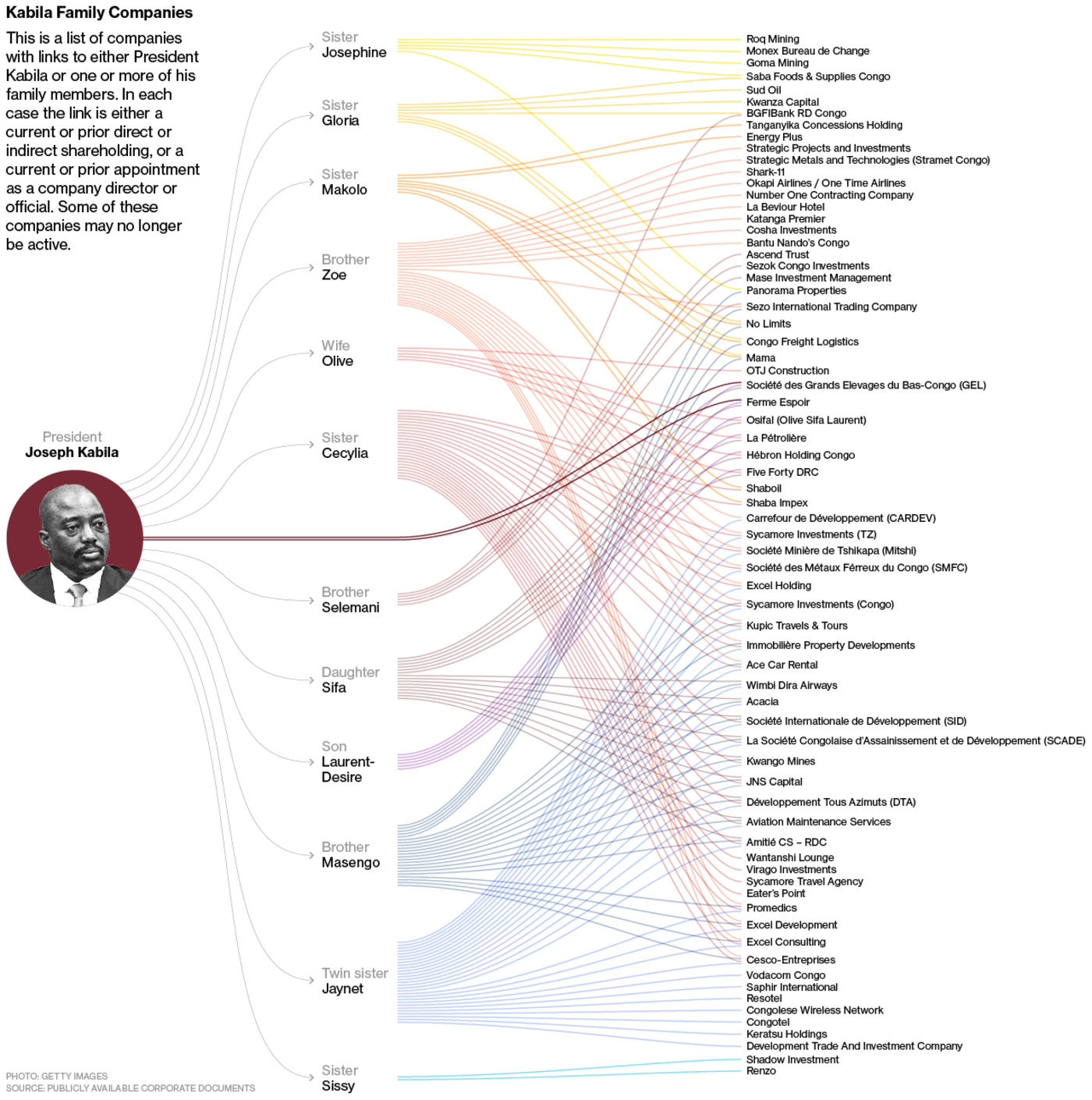Yesterday, Bloomberg News published an investigation into the sprawling business network of President Joseph Kabila’s family. The Congo Research Group (CRG) helped fund the research of one of the Bloomberg reporters and will publish a comprehensive report on the same subject in several weeks, providing evidence and greater detail about this business network. That report will be the first in a series of reports examining the business dealings of Congolese elites.
The Bloomberg article, which was also supported by a grant from the Pulitzer Center on Crisis Reporting, is eye-opening. Using company documents and court filings as well as interviews with businessmen and officials, the authors uncover at least 70 companies belonging to the presidential family––including President Kabila, his wife, two children, and eight of his siblings.
The businesses can be found in almost every part of the Congolese economy, including farming mining, banking, real estate, telecommunications and airlines. Due to a lack of transparency, it is difficult to put a value on these assets; the article says that two companies have investments of more than $30 million and that estimated revenue for another exceeds $350 million over four years; one of the diamond exporting companies sold more than $13 million in 2003 alone.
Here are some of the characteristics of this network:
- Two businesses own diamond permits that stretch more than 450 miles across Congo’s southwestern border with Angola;
- Various companies own more than 120 permits to dig gold, diamonds, copper, cobalt and other minerals;
- Some entities use the presidential guard to protect their assets. In some mining concessions, they force diggers to sell to a company owned by the family at under market price;
- One of these companies, Goma Mining, was involved in a key mining contract that the government refused to publish, triggering opprobrium from the International Monetary fund and leading to the suspension of a $500 million loan program in 2012
- 40 percent share of the Congolese branch of BGFI bank, which has facilitated a questionable loan from the Central Bank––which isn’t allowed to make commercial loans––to a company owned by people close to President Kabila (more on BGFI and the Kabila family here).
The Bloomberg report makes clear that it is not illegal for the president or his family members to be active in business. It suggests, however, that these investments could shed light on why the president has been reluctant to leave power.
The scope and kinds of companies the family owns raises serious questions about conflicts of interest and the misuse of the presidential guard. In a forthcoming, comprehensive report Congo Research Group will discuss the legality of the investments and provide details on many other companies owned in whole or in part by family members.
At the core of the 2006 constitution are notions of accountability; the president and all other senior officials and parliamentarians are supposed to declare their wealth when they enter and leave office. There is a law on the books to prevent conflicts of interest for state officials. When asked what the most important characteristic they were looking for in a public official, the most frequent answer was: “the candidate who is not corrupt.” We hope to contribute to these discussions regarding accountability through a series of reports of prominent political leaders in the government and the opposition.

